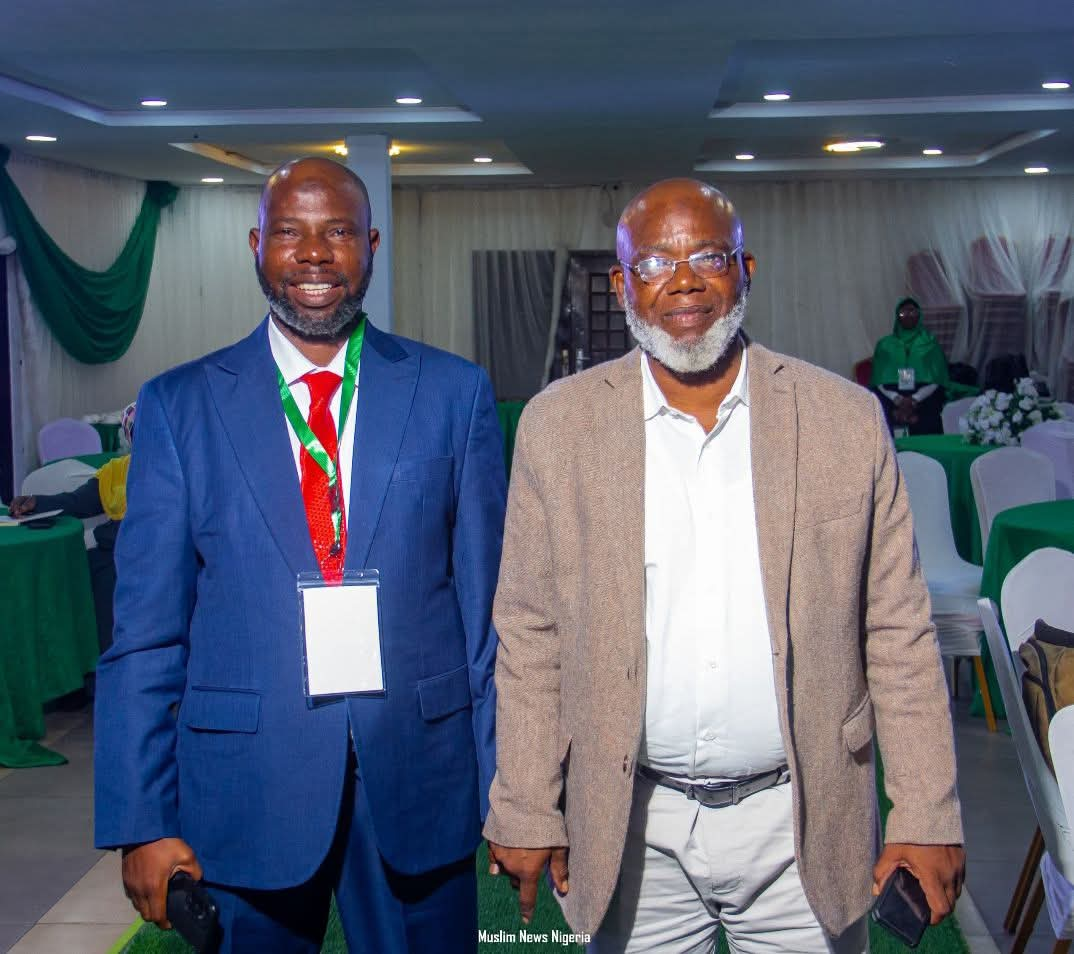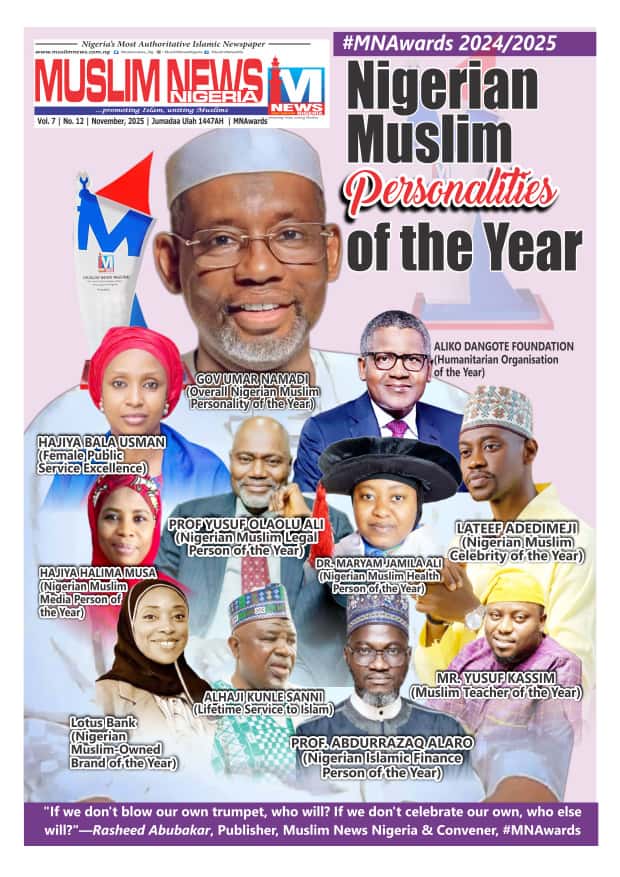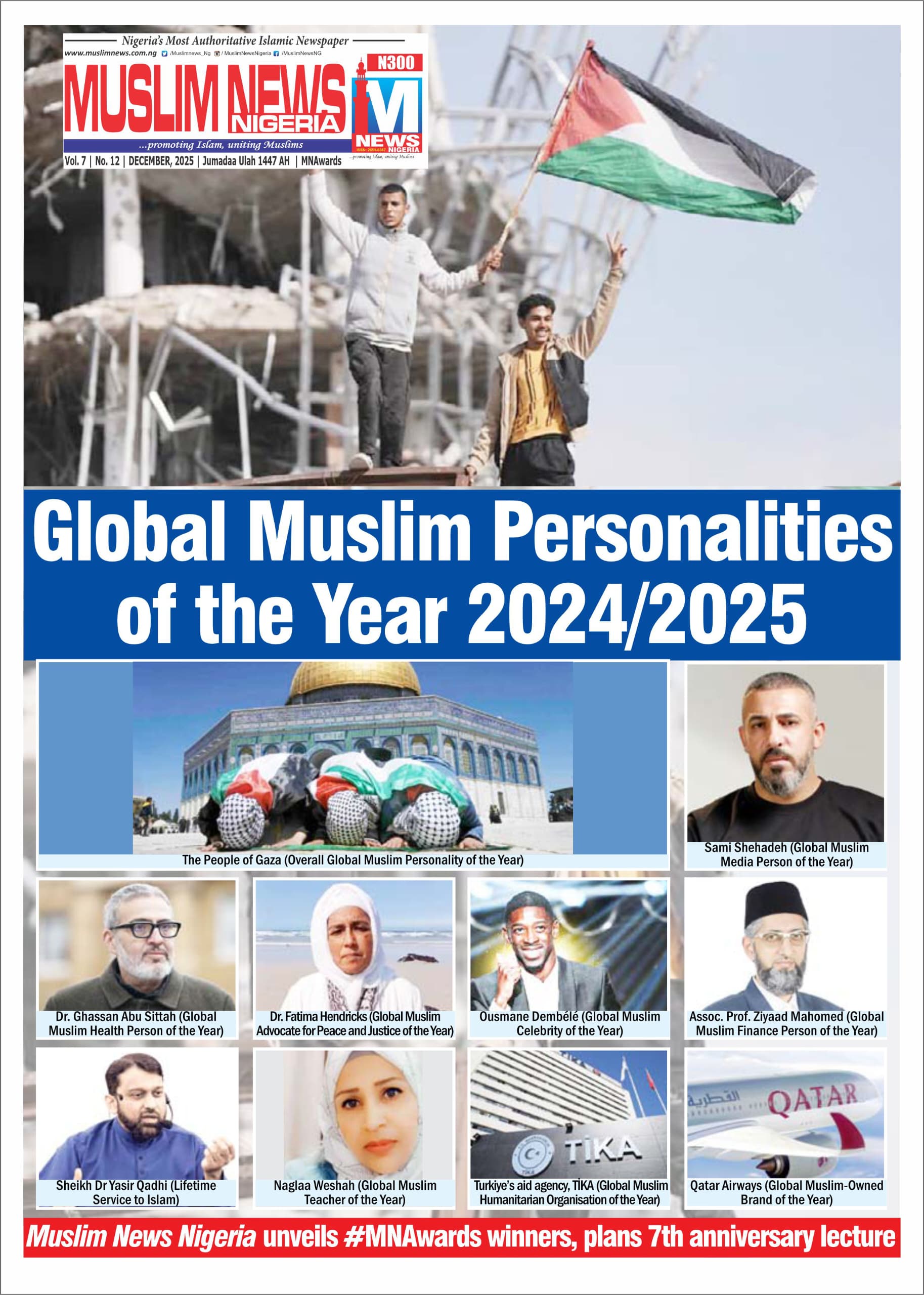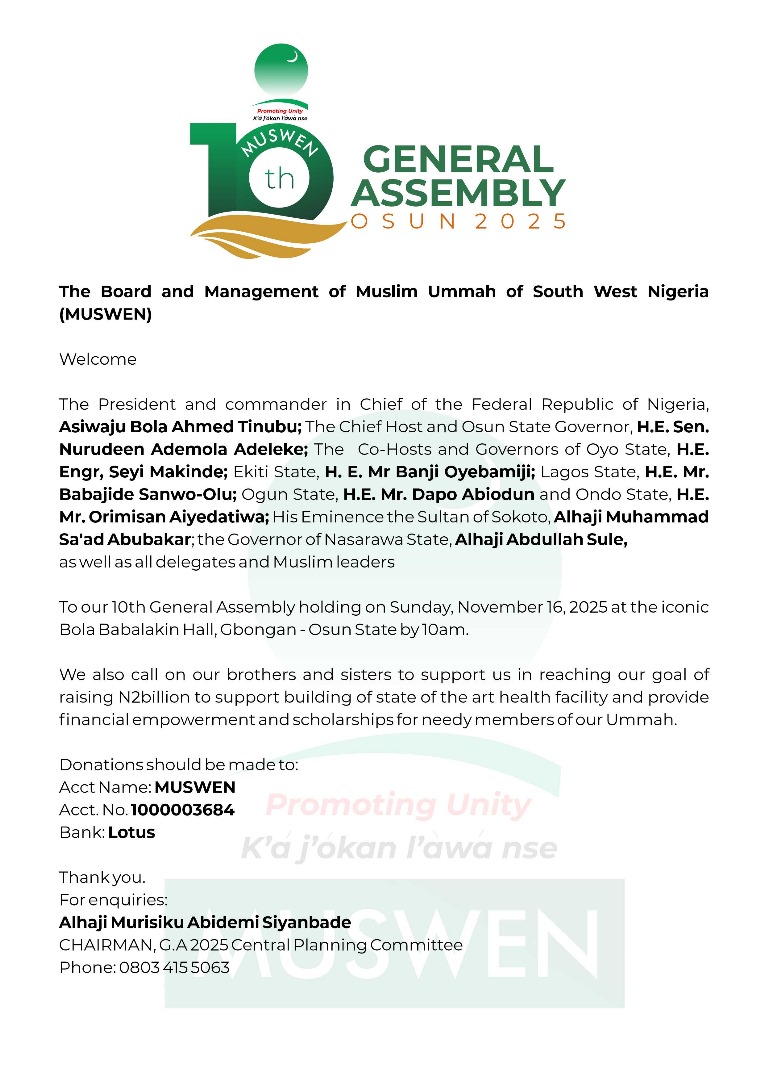* It will outpace conventional system: IIFP President, tasks Muslims on financing
Former Chairman of National Hajj Commission of Nigeria (NAHCON), Alhaji Zikrullah Olakunle Hassan has lamented the underinvestment by Muslims in Islamic financial services despite their numerical and economic strength.
Alhaji Hassan made this known on Wednesday while declaring open the 2025 annual conference of Institute of Islamic Finance Professionals (IIFP) with the theme, “Advancing Islamic Finance for Economic Resilience and Inclusive Growth.”
Muslim News gathered that a one-day conference held at the Lagos Airport Hotel, Ikeja was attended by key industry players, regulators, and same in the Islamic finance industry to assess the progress, opportunities and challenges in Nigeria’s Islamic finance sector.
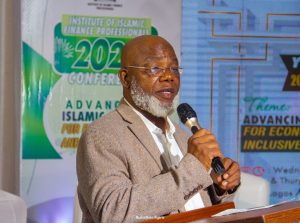
The former NAHCON boss, who chaired the occasion, raised concerns over the level of Muslims’ involvement in the Isamic finance industry in Nigeria.
He said, “As important as Muslims are economically, as numerous as we are, the percentage of investment in Islamic finance is still very, very low.”
He recounted experiences from the Islamic Development Bank (IDB) with her headquarters in Saudi Arabia, noting the bank’s dependency on funding from international institutions that do not share the same ideological belief such as World Bank and IMF.
“They [IDB] derive a lot of funds from World Bank, IMF, and African Development Bank. And they were honest enough to tell us that in their dealings, those banks are good to say, follow our rules, they are the ones giving you the money, not your rules.
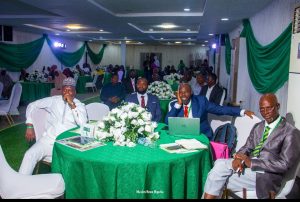
Alhaji Hassan, who is also a fellow of the Institute, revealed that the multilateral development finance institution, though focused on Islamic finance, only concerned about business.
According to him, “It has two windows – one for development and the one for commercial banks. And they told us that in Nigeria, the gentleman who got the highest loan from IDB is an Igbo man from Anambra State. He has the largest volume of transactions with the Islamic Development Bank because, of course, the IDB was blind to colour, race or gender. They are only concerned about business, and the Igbo man won it all.
The former NAHCON boss said the level of Nigeria participation in Islamic finance is still low compared to countries such as Malaysia and Indonesia, calling on members of IIFP to advocate Islamic financial practices in Nigeria.
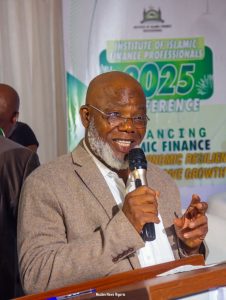
He said, I have had reason to be in Indonesia and Malaysia. And I know that Malaysia, which has just about 22 million Muslims, compared to Nigeria, have at least 16 commercial banks, which are Islamic commercial banks.
“Also, Indonesia also has countless numbers of banks. In the rural area, they have at least 164 Islamic banks, and they have 14 Islamic commercial banks. Of course, you can imagine the number of the micro-finances and other national institutions.
“If those people have got to that level and they are not stopping, I’m sure the purpose of our institute will be, among others, to grow Islamic finance in several aspects of Nigeria,” he said.
Alhaji Hassan however added despite the challenges, Sukuk market is growing, adding that, “As we speak, the Nigerian government has taken over one trillion investment in Sukuk.
Islamic finance ‘ll outpace conventional system: IIFP President
Earlier in his welcome address, the host and founding President of the Institute, Prof. Tajudeen Olalekan Yusuf, asked Muslims to embrace and see the Islamic finance industry as their own, expressing confidence it will outpace the conventional finance system.
Prof. Yusuf said there would be teething challenges for the industry, but stakeholders should remain resilient and dogged.
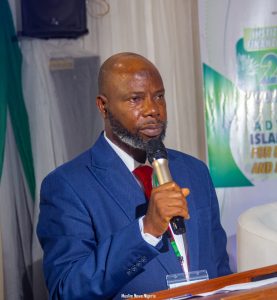
“Any conscious Muslim should see the Islamic finance industry as their own. This idea of we and them will not take us anywhere. We need to see this industry as our own and never allow it to fail. How do we make it our own? By investing in Islamic finance education to know how it works. This actually forms part of the mandates of the Institute of Islamic Finance Professionals. We want to make Islamic finance a household name in Nigeria by 2030 and we are working ardently at it,” he noted.
Shedding light on the purpose of the gathering, the founding President said it was to bring relevant stakeholders together to brainstorm, share experience, and visualise the future of the Islamic finance industry.
“We need to understand what we are doing right. What are those things we need to correct? How do we move forward? Like you know, there is strength in unity, dialoguing, and sharing of ideas,” he said.
Speaking further, Prof. Yusuf said regulations for the Islamic finance industry should be cognisant of developments and supportive of innovation.
“When innovations come, regulators should try to see how to dot the i’s and cross the t’s so that we can all get it right and stakeholders’ interest can be maintained.
“Regulation should keep tab of developments in the industry and should be more inclusive in focus such that we can tap this young population — about 60 per cent of Nigerians are within the ages of 18 and 35. That speaks volumes in terms of the potentials of the industry. These are the Gen Z generation that we must go and tap for the betterment of all stakeholders.”
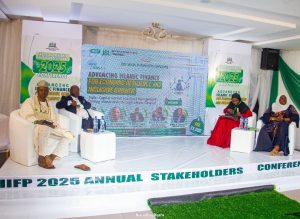
Speaking on awareness about Islamic finance, the Professor of Actuarial Science appreciated that it is growing but still at a slow rate.
He urged the Muslim Ummah and stakeholders of the industry to do more, especially by carrying the Islamic scholars along to leverage their platforms.
“The Ulamah occupy the minbar, so they have access to a lot of people. They should utilise that platform. Then, the present practitioners and operators should also reach out. I am very sure they are not reaching out enough because the potentials are there. People need the services. So, those who are operators should go out there and market themselves, the sales will come,” he said.
The Conference witnessed panel sessions with stakeholders calling for effective regulation, adequate awareness and unity of operations in the rapidly emerging sector.

